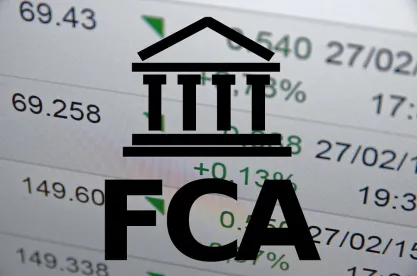On May 7, 2019, the Department of Justice (DOJ) released guidance for civil prosecutors in determining how to assess cooperation in False Claims Act (FCA) cases. See DOJ’s press release and its revised manual. In particular, the guidance formalizes factors prosecutors must consider when assessing whether an entity or person should receive cooperation credit and the extent of that credit. Cooperation credit typically results in DOJ reducing penalties or damages multiples imposed in an FCA resolution. Cooperation credit can also result in DOJ notifying relevant agencies of the cooperation, publicly acknowledging cooperation, and assisting the entity or person in resolving qui tam litigation with any relator. DOJ will not award any credit to a defendant that conceals involvement in the misconduct by senior personnel or that otherwise acts in bad faith.
This guidance, while newly issued, appears to reflect DOJ’s current and historical use of cooperation credit over the last several years. The guidance provides for cooperation credit when defendants or would-be defendants voluntarily self-disclose misconduct, take other steps to cooperate, and implement adequate and effective remedial measures. In determining cooperation credit, the guidance provides that DOJ will consider timeliness, voluntariness, truthfulness, completeness, and reliability; the nature and extent of the assistance; and the significance and usefulness of the cooperation to DOJ.
The new guidance is clear that simply responding to a compulsory process for information (like a civil investigative demand or a subpoena) does not in itself entitle the responder to cooperation credit. Cooperation credit must be earned.
Maximum Credit
What is new is that DOJ provides detail about how it will determine the level of cooperation credit that a defendant or would-be defendant can receive. Under the new guidance, an entity or individual seeking “maximum” credit (an undefined term) should (1) undertake a timely self-disclosure that includes identifying all individuals substantially involved in or responsible for the misconduct, (2) provide full cooperation with the government’s investigation, and (3) take remedial steps designed to prevent and detect similar wrongdoing in the future. Each of these categories is a different type of cooperation under the guidelines, and each is described in more detail below.
Voluntary Self-Disclosure
The updated manual provides for credit for “proactive, timely, and voluntary” self-disclosures of matters to DOJ that could serve as bases for liability under the FCA. Entities and persons can qualify for self-disclosure credit by self-disclosing conduct before any DOJ investigation begins or for self-disclosing conduct in the course of a DOJ investigation that goes beyond the scope of DOJ’s known concerns.
Other Forms of Cooperation
Credit also may be due for steps to cooperate with an ongoing government investigation, which include:
-
Identifying individuals substantially involved in, or responsible for, the misconduct (note that a focus on identifying individuals has been a DOJ priority since at least the “Yates Memo,” in 2015 — see our prior posts at https://www.natlawreview.com/article/department-justice-provides-guidance-prosecution-individuals and https://www.natlawreview.com/article/doj-announces-changes-to-yates-memo-policy-individual-accountability;
-
Disclosing relevant facts and identifying opportunities for the government to obtain evidence relevant to the government’s investigation that are not in the possession of the entity or individual, or not otherwise known to the government;
-
Preserving, collecting, and disclosing relevant documents (and information relating to their provenance) beyond existing business practices or legal requirements;
-
Identifying individuals who are aware of relevant information or conduct;
-
Making available for meetings, interviews, examinations, or depositions an entity’s officers and employees who possess relevant information;
-
Disclosing facts relevant to the government’s investigation, gathered during the entity’s independent investigation (not to include information subject to attorney-client privilege or work product protection), including attribution of facts to specific sources rather than a general narrative of facts, and providing timely updates on the organization’s internal investigation into the government’s concerns, including rolling disclosures of relevant information;
-
Providing facts relevant to potential misconduct by third parties;
-
Providing information in native format, and facilitating review and evaluation of that information if it requires special or proprietary technologies so that the information can be evaluated;
-
Admitting liability or accepting responsibility for the wrongdoing or relevant conduct; and,
-
Assisting in the determination or recovery of the losses caused by the misconduct.
Remedial Measures
DOJ also considers awarding credit for entities that take appropriate remedial actions in response to the purported FCA violation, including for entities that thoroughly analyze the cause of the underlying conduct, remediate to address the root cause of the conduct, implement or improve an effective compliance program, and appropriately discipline or replace those identified as responsible for the misconduct (either through their direct participation or failure in oversight or supervision). DOJ also considers for cooperation credit any additional steps that demonstrate recognition of the seriousness of the misconduct, acceptance of responsibility for it, and the implementation of measures to reduce the risk of repetition and to identify future risks.
These measures underscore the importance of undertaking early remediation and proactively presenting those actions to DOJ.
What Cooperation Is Not
DOJ is clear that cooperation does not include mere response to a subpoena, civil investigative demand, or other compulsory process for information. Nor does cooperation require a waiver of attorney-client privilege or work product protection.
The new section in the U.S. Attorney’s Manual further states DOJ will not award any credit to an entity or individual that conceals involvement in the misconduct by members of senior management or the board of directors, or for those that otherwise demonstrate a lack of good faith.
DOJ cautions that it has the discretion to consider other factors that may reduce the credit available to an entity or individual, or that may render the entity or individual ineligible for credit.
The DOJ press release and full policy can be found here: https://www.justice.gov/opa/pr/department-justice-issues-guidance-false-claims-act-matters-and-updates-justice-manual and https://www.justice.gov/jm/jm-4-4000-commercial-litigation#4-4.112









 />i
/>i
